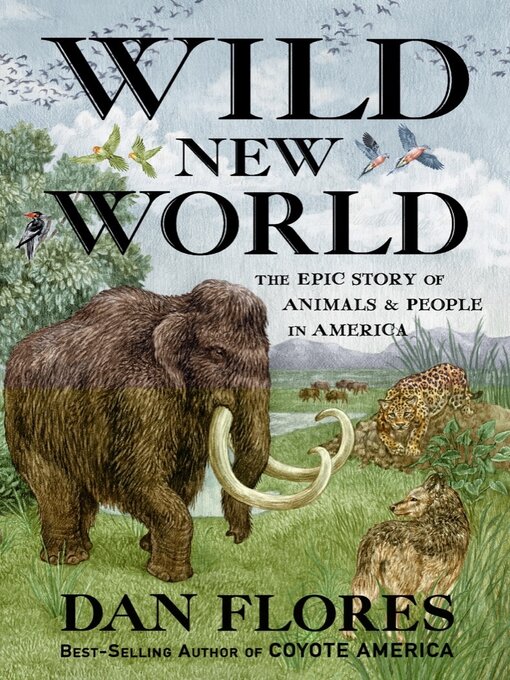Winner of the 2023 Rachel Carson Environment Book Award
Winner of the 2023 National Outdoor Book Award for Natural History Literature
Shortlisted for the 2023 Phi Beta Kappa Society Ralph Waldo Emerson Award
A Kirkus Reviews Best Nonfiction Book of 2022
A deep-time history of animals and humans in North America, by the best-selling and award-winning author of Coyote America.
In 1908, near Folsom, New Mexico, a cowboy discovered the remains of a herd of extinct giant bison. By examining flint points embedded in the bones, archeologists later determined that a band of humans had killed and butchered the animals 12,450 years ago. This discovery vastly expanded America's known human history but also revealed the long-standing danger Homo sapiens presented to the continent's evolutionary richness.
Distinguished author Dan Flores's ambitious history chronicles the epoch in which humans and animals have coexisted in the "wild new world" of North America—a place shaped both by its own grand evolutionary forces and by momentous arrivals from Asia, Africa, and Europe. With portraits of iconic creatures such as mammoths, horses, wolves, and bison, Flores describes the evolution and historical ecology of North America like never before.
The arrival of humans precipitated an extraordinary disruption of this teeming environment. Flores treats humans not as a species apart but as a new animal entering two continents that had never seen our likes before. He shows how our long past as carnivorous hunters helped us settle America, initially establishing a coast-to-coast culture that lasted longer than the present United States. But humanity's success had devastating consequences for other creatures. In telling this epic story, Flores traces the origins of today's "Sixth Extinction" to the spread of humans around the world; tracks the story of a hundred centuries of Native America; explains how Old World ideologies precipitated 400 years of market-driven slaughter that devastated so many ancient American species; and explores the decline and miraculous recovery of species in recent decades.
In thrilling narrative style, informed by genomic science, evolutionary biology, and environmental history, Flores celebrates the astonishing bestiary that arose on our continent and introduces the complex human cultures and individuals who hastened its eradication, studied America's animals, and moved heaven and earth to rescue them. Eons in scope and continental in scale, Wild New World is a sweeping yet intimate Big History of the animal-human story in America.


